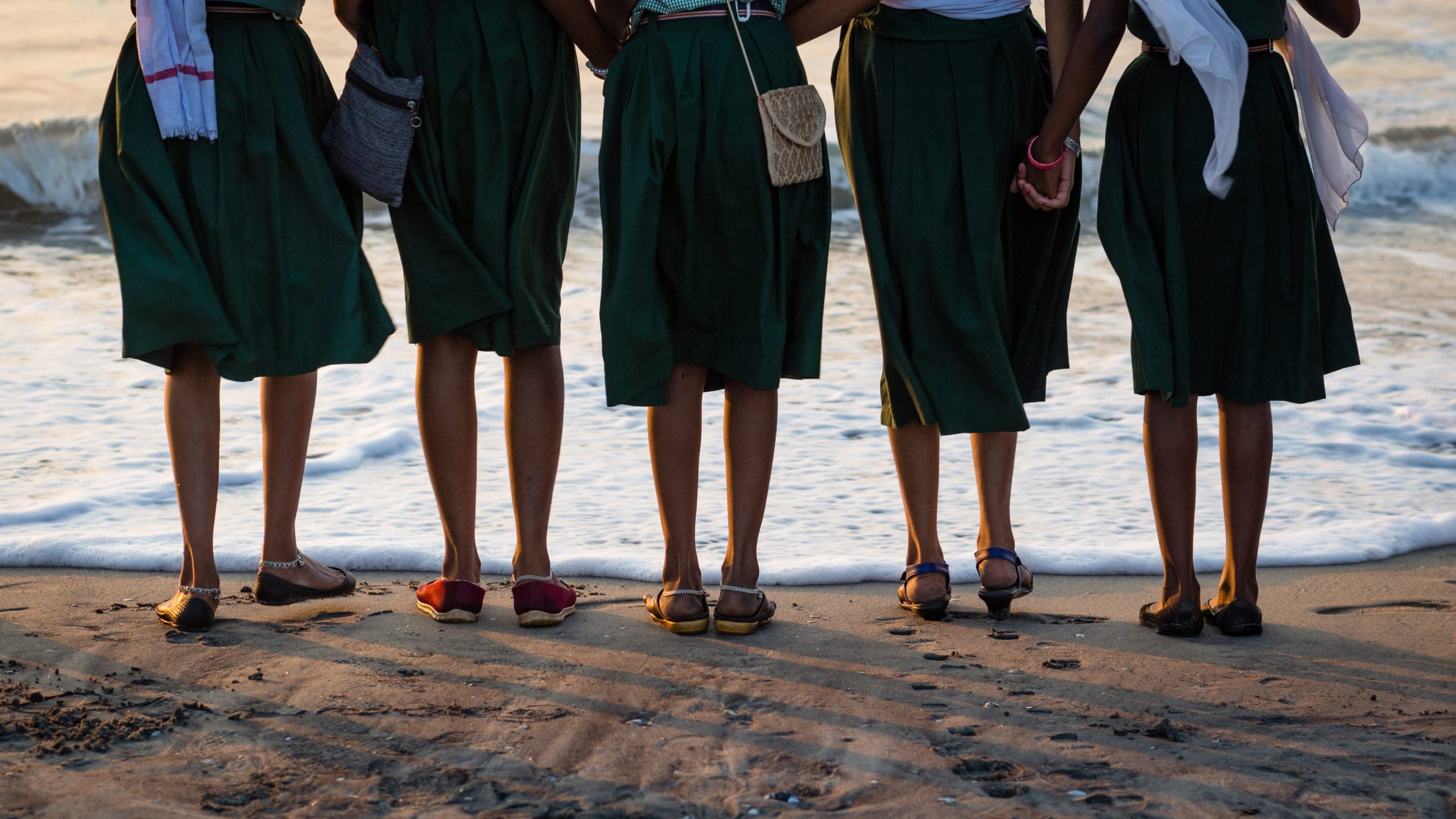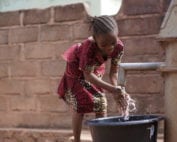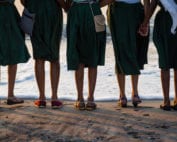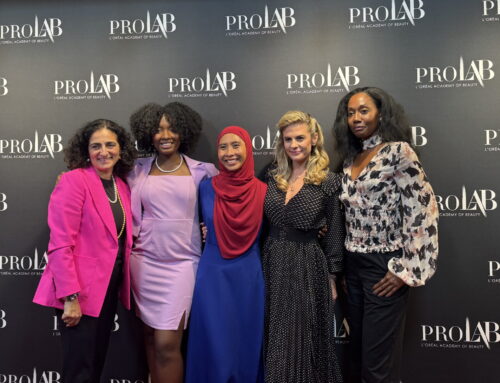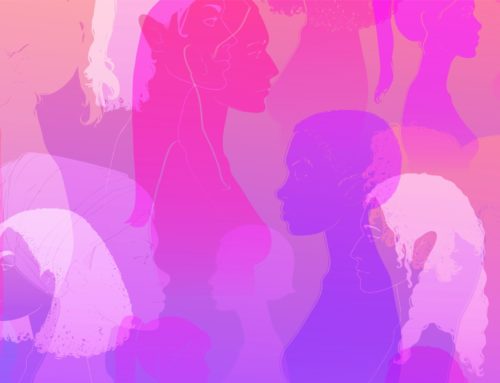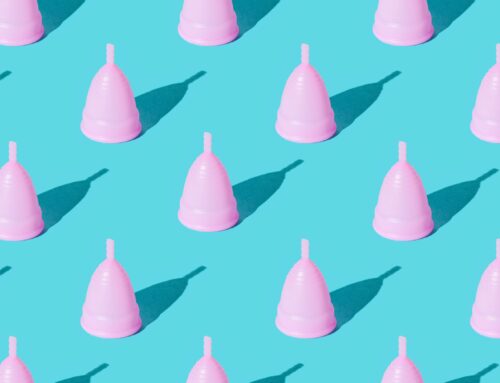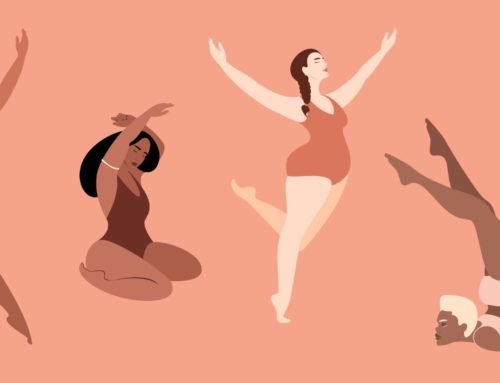The Devastating Consequences of Period Poverty for Girls
Recently, I heard an extremely distressing story about one of the girls in Global G.L.O.W.’s GLOW Club in Kenya. In desperation, the 13-year-old girl, who is at the top of her 8th-grade class, asked a motorbike driver for assistance in finding menstrual hygiene products. He offered to get them for her, but only if she would have sex with him. He told her she would not get pregnant because it was her first time. Tragically, she believed him, did get pregnant and, if not for the advocacy of Global G.L.O.W. ‘s partner, Phoebe D. Ekman, and her team at Milele Center in Kusumu, Kenya, she would have dropped out of school entirely. This extreme story illustrates the depths of the plight of a UNICEF-estimated 1.8 billion girls, women, and gender non-binary persons, who do not have the information or resources to manage their monthly cycle in a dignified, healthy way.
In normal, non-crisis times, poverty, unjust social norms, gender inequality, cultural taboos, and lack of access to basic services cause menstrual hygiene needs to go unmet. Menstrual supply scarcity forces many girls in underserved communities to use unsanitary self-fashioned materials such as dirty rags, ashes, and bed linings that are less-than-effective and can cause infection. In a time of crisis such as this COVID-19 pandemic, these deprivations are exacerbated. The result, in all times, is profound negative impacts on the lives of those who menstruate, including impacts on attendance in school; freedoms and choices; work and community life; safety; extreme lack of access to supplies or foregoing food and necessities in favor of supplies; and emotional stress and anxiety.
Around the world, the consequences of period poverty can be devastating for girls.
- School Attendance: Girls worldwide miss 10-20% of school days per year due to lack of menstrual supplies, inadequate sanitation, toilets, period pain, or social stigma, according to the World Bank. Phoebe from Milele Center also reports that male teachers and male peers will often bully young women who are on their period, not allowing them to use the restroom with a profound effect on girls’ self-esteem and on school attendance. Additionally, “They lack pain relievers because they cannot afford it, and find the pain unbearable while trying to study”, she says. In Rwanda, according to ActionAid, a UK-based NGO, girls often miss 50 days of school per year due to a lack of supplies and “…because they don’t want to be laughed at.” Similarly, in a study conducted by the NGO WoMena, it was found that many girls skipped school entirely while on their period to avoid teasing by classmates.
Girls who have missed many school days as a result of their period fall behind in school and too often drop out altogether. In addition to this being a massive loss of human potential, girls who have dropped out of school are more likely to be trafficked, forced into child marriage, or have an unplanned pregnancy.
- Shame and Stress: Social stigma or period taboo, rooted in gender inequality, and discriminatory, patriarchal norms about women’s and girls’ status and place in society, cause women and girls to feel persistent shame and fear during periods. Societal stigma is deeply rooted in world religions and institutions with such admonitions as, “Go apart from women during the monthly course, do not approach them until they are clean.” ; and “…in her menstrual impurity; she is unclean… whoever touches…shall be unclean and shall wash his clothes and bathe in water and be unclean until evening.”; and in the first Latin encyclopedia (73 AD): “Contact with [menstrual blood] turns new wine sour, crops touched by it become barren, grafts die, seed in gardens are dried up, the fruit of trees fall off, the edge of steel and the gleam of ivory are dulled, hives of bees die, even bronze and iron are at once seized by rust, and a horrible smell fills the air; to taste it drives dogs mad and infects their bites with an incurable poison.”.
As a result of social stigma, girls and women are often expected to refrain from normal activities. As one girl in Indonesia in the PLAN International program for girls said, “I am not allowed to take a bath, rinse my hair or cook during my menstruation.” Period taboo restricts girls and women’s activities, their agency and self-esteem.
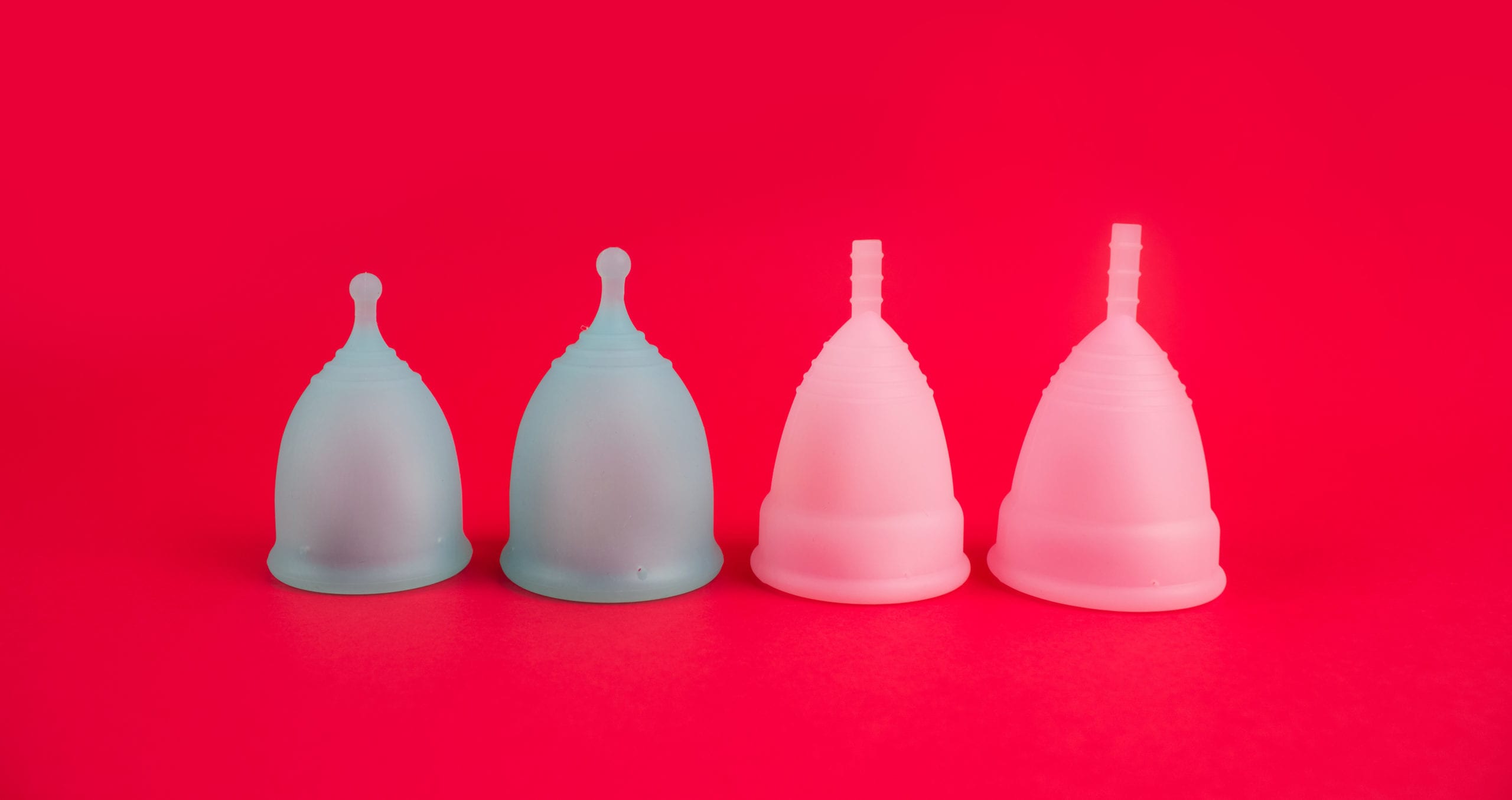
In the U.S., period stigma is highly, though at times, subtly, evident. Fear of accidents and deep shame about this natural biological process are pervasive among girls and women. Discussions about periods are avoided, even between mothers and daughters, and women loath to even speak the words pertaining to menstruation. As of 2019, most states still placed a “luxury tax” or “pink tax” on menstrual products flagging them a luxury, not a necessity. The price of menstrual products alone limits access with huge consequences, including perpetuating homelessness with women torn between buying food or menstrual products. The shame surrounding periods is often a deterrent to asking for help in buying menstrual products, resulting in missing school, job interviews, and more. Only a handful of US states have passed laws mandating schools to provide period products to students, deeming them as essential as toilet paper. Stunningly, federal prisons only made menstrual products free in 2018.
- Health and Safety: Women’s and girls’ health, safety, and well-being may be put at risk due to lack of and cost of menstrual supplies. Lack of supplies forces many girls in underserved communities to use unhygienic materials which can cause urinary tract and other infections. Horrifically, girls may engage in “transactional sex” with men in trade for money to buy pads, like the 13-year-old in Kenya referenced earlier. We also know that worldwide, when resources are scarce, women and girls may risk their health and vitality by choosing menstrual supplies over food or other health needs and necessities in order to avoid potential period shame.
- Social Sanctions: All over the world, menstruating women and girls are often regarded as unclean, dirty, moody, or as powerful pollutants to be restricted. This can result in being prohibited from daily activities, from eating certain foods, or from engaging in rituals and religious practice. One severe social menstruation-related sanction called chhaupadi is an ancient tradition practiced in Nepal involving banishing menstruating women and girls to mudhuts for the duration of their period because they are deemed impure. This archaic sanction, illegal yet still widely practiced today, was described by one girl in Global G.L.O.W.’s program in Nepal as “…being treated worse than a dog.”
“In class one day I began my menstruation. Fear poured over me. I began to have a negative attitude towards myself.”
Global G.L.O.W. focus group, Kenya, 2018
At Global G.L.O.W., we believe that to effectively address period poverty, the first step is to normalize menstruation and destroy taboos around this natural, biological process. To this end, it is critical that girls be educated. Many pre-adolescent girls lack information and support before or during the transition to their first periods, leaving them unprepared to manage their period safely, confidently, and without the burden of societal stigmas. This belief is underscored by a study by ActionAid that showed that girls report that their greatest need and desire is for sexual, reproductive, and menstrual health education and, especially for safe spaces to talk about their periods. Secondly, it is critical that global policies be enacted and enforced to make menstrual products, sanitation, and hygiene easily accessible to all girls and women. These things are necessities, not luxuries.
For the global community, the repercussions of failing to provide girls with menstrual hygiene education, support, and supplies are long-lasting, pervasive, and represent a massive loss of potential. An investment in girls is the greatest investment we can make towards creating a strong, equitable society where everyone, not just girls and women, can live lives of their own design. To empower girls, we must make period poverty obsolete.
The views expressed in this blog are that of the author and do not necessarily represent those of Global G.L.O.W. and its employees.


